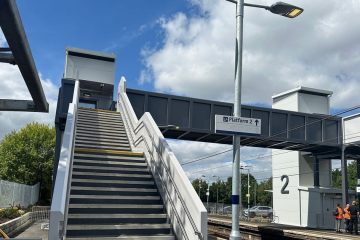Understanding SWR and Its Impact on Rail Travel

Introduction to SWR
South Western Railway (SWR) plays a significant role in connecting the southwestern parts of the United Kingdom to London and other key hubs. Operational since August 2017, SWR has aimed to provide a reliable and efficient rail service to millions of commuters and travellers. Its relevance is accentuated in the current context of rising passenger demands, economic development, and climate concerns, highlighting the importance of sustainable transport solutions.
Recent Developments in SWR
Recently, SWR has announced a series of initiatives to enhance its service quality and punctuality. According to the latest statistics, SWR trains achieved over 80% punctuality in the last quarter, a marked improvement attributed to better maintenance schedules and an increase in staff training. Furthermore, the company plans to invest £2 million in upgrading its train fleet, focusing on cutting-edge technology aimed at reducing delays and improving customer experience.
SWR is also addressing feedback from passengers concerning the need for modern amenities. With new digital information systems being introduced in stations and on trains, commuters can expect updates on delays, services, and ticketing options via real-time data. Moreover, the introduction of free Wi-Fi on numerous routes exemplifies SWR’s commitment to keeping passengers connected during their travels.
Challenges Facing SWR
Despite these advancements, SWR continues to face challenges, especially regarding overcrowding during peak hours. Various reports indicate that some routes exceed their capacity, leading to concerns over passenger comfort and safety. In response, SWR is working closely with the Department of Transport to assess the possibility of increasing service frequency to accommodate the growing number of users.
Furthermore, external factors such as adverse weather conditions and network disruptions continue to pose challenges for rail operations. SWR has initiated collaborations with other rail operators to improve resilience and contingency planning for these unexpected events.
Conclusion: The Future of SWR
As we look ahead, the future of South Western Railway appears to be focused on enhanced passenger experience, sustainability, and connectivity. The promised investments and upgrades indicate a determination to address existing challenges while promoting a more efficient and pleasant rail travel experience. For commuters and stakeholders, SWR’s ongoing improvements highlight the importance of adaptable and reliable public transportation systems, critical in the post-pandemic landscape. As the railway network continues to evolve, SWR is poised to play a pivotal role in shaping the future of rail travel in the UK.








